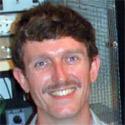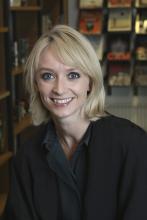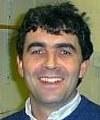Medical Science
Medicine at St John's
St John’s is proud of its medics, and is able to offer a range of strong educational support for undergraduates and clinical students.
We view the six year course as integrated: clinical and scientific ideas and opportunities offered in the first three years are carried through into the last three years through electives, summer school opportunities and special study components. We have appointed two new Clinical Directors of Studies specifically to enable this; one who will teach pre-clinically as well as direct clinical studies, and one clinically qualified academic to champion scientific achievement and career development, throughout the six years. St John’s has six Fellows and two Teaching Associates (senior scientists) directly involved in teaching and several other Fellows who contribute on a more occasional basis.
St John’s provides excellent facilities for those reading medical subjects. The library is well stocked with the core medical textbooks, and there are several skeletons and medical models available for loan to students as extremely useful teaching aids. The College operates the Rolleston Fund, which provides a very generous book grant scheme for undergraduates, over and above the standard College scheme for other subjects, and substantial grants to support fifth year electives. This funding is additional to the many grants for research, resources and travel which are available to all St John’s students.
St John’s is a relatively large college with an intake of 17-18 medical students/year. These come from a wide variety of schools and backgrounds and from all parts of the UK and abroad. There will be 100 or so medics across the six years, so that there is a significant medical community within the College which forms a close-knit supportive group. There is a thriving College Medical Society, which arranges social events and talks, and holds an annual dinner in which leading clinicians come to present recent cases and research findings. The society greatly assists in supporting contact between students at different levels of training, for example to discuss third year subject choices and fifth year electives.
Entry Details
UCAS Code: A100
Typical Minimum Entry Requirements
A Level: A*A*A, with A* in A Level Chemistry
International Baccalaureate: 42 points, with 776 at Higher Level
Please find other equivalent qualifications here.
Essential/Desirable Subjects: A Level/IB Higher Level Chemistry, and two of A Level/IB Higher Level Biology, Mathematics or Physics
Submitted Work: None
Pre-interview Assessment: University Clinical Aptitude Test (UCAT). More information can be found here.
You must register for pre-interview assessments so please do review this information carefully.
Work Experience:
To develop understanding of what a career in Medicine involves and your suitability for your intended profession, you’re strongly advised (though not required) to undertake some relevant work experience, either paid or voluntary, in a health or social care organisation.
We are not prescriptive about how this is obtained, recognising the widely differing opportunities available.
We cannot admit Affiliated or Graduate Course students to read Medicine.
Interviews
We attract a strong cohort of applications to St John's College. The initial measure by which applicants are ranked for deselection is the UCAT, which is seen as a reliable indicator of academic ability that all applicants can be compared with. We advise that applicants prepare for the UCAT in the months leading up to the test.
Our overall assessment of your academic potential will be based on a combination of past examination results, UCAT results, the school report that we ask your school to write, as well as the interviews. The main purpose of the interviews is to help us to set this information in a wider perspective and to find out more about your motivation and aptitude for the Cambridge course and profession as a whole. We aim to conduct our interviews in a friendly and informal manner and you should not feel daunted by the prospect of them. Two interviews are held for each candidate, of about 20 minutes each:
The Aptitude for Medicine Interview is conducted by a subject expert in one of the basic medical sciences and a medical practitioner (usually the Director of Clinical Studies). This interview focuses on professional development and the wider aspects of medicine. You will be asked what your motivation is to study medicine as a vocation, and to show any relevant experience you have in healthcare or caring in general. The interview will also explore a number of general questions about your understanding of medicine, public health, interaction with patients and related topics.
An example of the type of questions that you might be asked at interview is 'Should COVID-19 vaccines for children be compulsory?'.
The Science interview is given by two Fellows in medical sciences. This academically-based interview will draw together ideas which you have studied in your different subjects at school. The aim is to see if you can apply concepts which you have already met in ways which you have not encountered before. The interview is normally divided into two approximately-equal parts. One will typically explore a problem loosely-related to medicine. The other will be designed to test your scientific reasoning skills as you link together concepts from the basic sciences to address a problem which you have not met before.
A sample of the Scientific Reasoning Skills problem is provided, based on the questions used in the 2017 admissions round. The problems used in the actual interview will, of course, normally be different each year.
People
Directors of Studies
Professor Hugh Matthews - Medical Sciences (Pre-Clinical)

Dr Fleur Kilburn-Toppin- Medical Sciences (Clinical)

Dr Timothy Sadler - Medical Sciences (Clinical)
Tutor
Professor Andrew Woods

Subject Fellows
Professor Jean Abraham
Professor Graham Burton
Professor Steve Edgley
Professor Richard Gilbertson
Dr Fleur Kilburn-Toppin
Professor Ann-Louise Kinmonth
Professor Graham Ladds
Professor Hugh Matthews
Professor Ole Paulsen
Dr Ritwick Sawarkar
Dr Amanda Sferruzzi-Perri
Dr David Williams
Dr Ian Winter
College Teaching Associates
Dr Tereza Cindrova-Davies
Dr Timothy Sadler
Further Information
Further Information
Please visit the Cambridge University Open Days where generic information on the course is available.
In addition College Open Days provide an opportunity to meet with the Director of Studies.